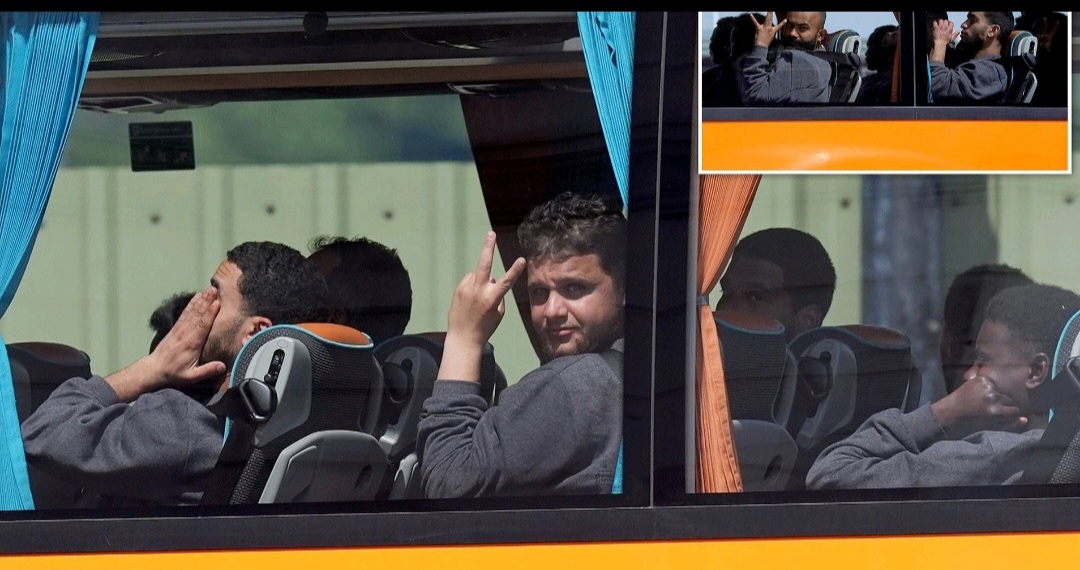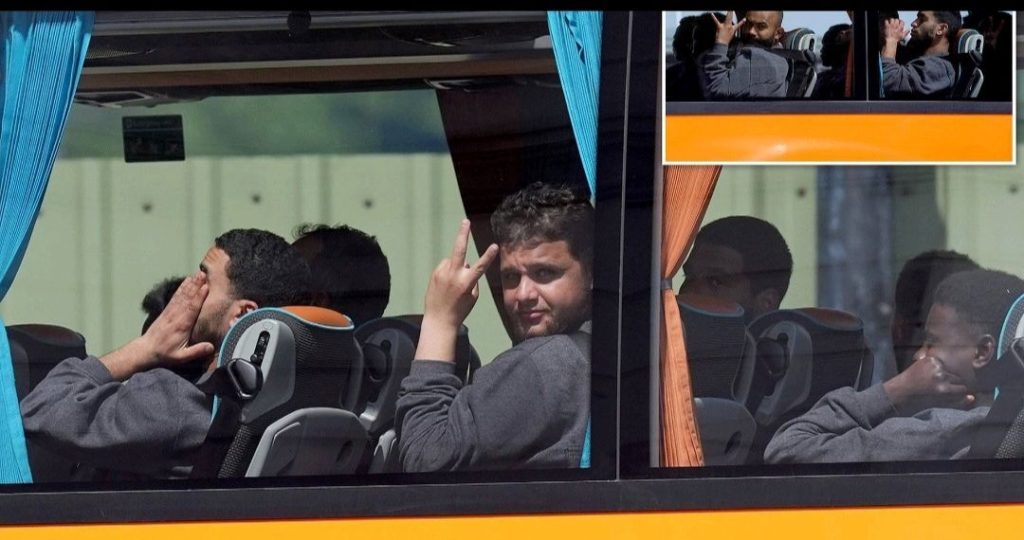
In a day filled with human drama and political declarations, migrants were seen flashing hand signs as they departed on a bus from Dover, shortly after dozens were intercepted crossing the English Channel in small boats. This incident coincides with Labour leader Sir Keir Starmer’s unveiling of a new plan to address the ongoing small boat crisis, sparking controversy and debate.

According to the Daily Mail, groups of predominantly male migrants were brought ashore at Dover docks in Kent, wearing orange life jackets. They were intercepted by the Border Force and taken to the immigration processing centre at the former Jetfoil terminal in the Western docks. Today’s arrivals have pushed the total number of intercepted migrants this year to 9,037.
Sir Keir Starmer’s new policy aims to scrap the controversial Rwanda deportation plan and introduce a robust Border Security Command. This elite unit is intended to treat people smugglers with the same severity as terrorists, enhancing the UK’s border security measures.
Official figures reveal that 211 migrants arrived on Thursday alone, including one individual who required a wheelchair and was assisted by staff upon disembarkation. The recent spell of sunny weather and calmer seas has contributed to an increase in the number of crossings, with 1,470 migrants arriving in May alone.
A Home Office spokesperson emphasized the urgency of implementing the Rwanda deportation policy to deter such crossings, highlighting ongoing collaboration with French police to manage the situation.
The political landscape is also charged, with Dover MP Natalie Elphicke recently defecting from the Conservatives to Labour, criticizing Prime Minister Rishi Sunak’s handling of the border crisis. This political turmoil adds another layer of complexity to the already contentious issue of migration and border security in the UK.
As reported by the BBC, Natalie Elphicke’s defection to Labour has split opinions in her constituency. Some local councillors have branded her a “turncoat,” while others have expressed understanding of her decision. Elphicke cited housing and border security as her primary concerns for leaving the Conservative Party.
The Guardian reported that the UK government has faced legal challenges and criticism over its Rwanda deportation plan. The Supreme Court declared the policy unlawful, citing concerns about Rwanda’s human rights record and the safety of asylum seekers. Despite these challenges, the government has continued to push for the implementation of the policy.
Labour’s proposed measures have sparked a mix of support and criticism. While some view these plans as a necessary overhaul of an ineffective system, others, including the Tories, have labeled them as potentially transforming the UK into the “asylum capital of the world.”
As the political debate intensifies, the human aspect of this crisis continues to unfold on the shores of Dover, with each boat arrival telling a story of desperation and hope, seeking refuge from turmoil and conflict. The UK remains a battleground for policies that will determine the future of many seeking safety and a new start.




